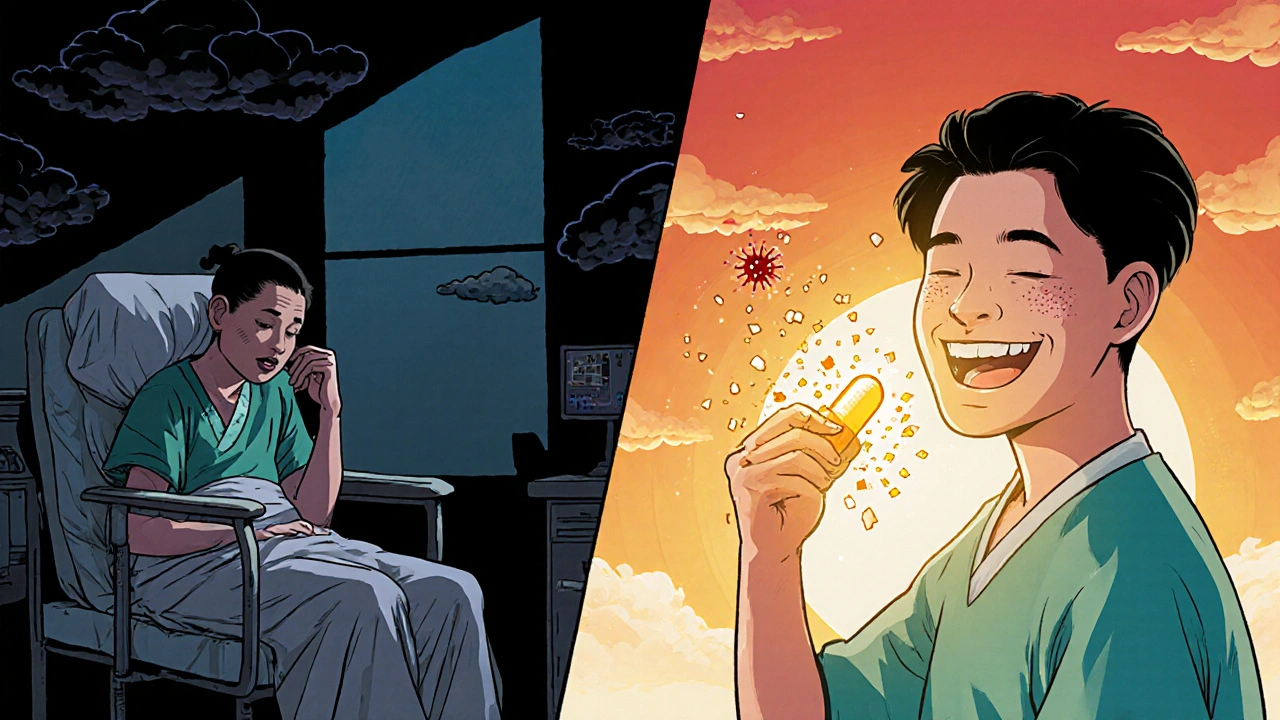Hepatitis C Cure: What Works, What’s New, and What You Need to Know
When we talk about a hepatitis C cure, a medical breakthrough that eliminates the hepatitis C virus from the body, often with over 95% success. Also known as viral hepatitis C eradication, it’s no longer a distant dream—it’s a daily reality for millions who started treatment in the last decade. Unlike older therapies that lasted a year and came with brutal side effects, today’s treatments are short, simple, and far gentler. You don’t need injections. You don’t need to miss work. You just take pills for 8 to 12 weeks, and the virus leaves your system.
This shift didn’t happen by accident. It came from direct-acting antivirals, a class of drugs that target specific parts of the hepatitis C virus to stop it from multiplying. Also known as DAAs, these include sofosbuvir, ledipasvir, and daclatasvir—each designed to hit the virus where it’s weakest. They work so well that even people with advanced liver damage, like cirrhosis, now have a real shot at full recovery. And unlike vaccines for hepatitis A or B, there’s no preventive shot for hepatitis C, so treatment is the only way to stop it from spreading or worsening.
But a cure isn’t just about the pills. It’s about your liver. Hepatitis C silently damages your liver over years, sometimes decades, before symptoms show up. That’s why early testing matters. If you were born between 1945 and 1965, got a blood transfusion before 1992, used injectable drugs, or have unexplained fatigue and joint pain, you should get tested. A simple blood test can find the virus before it causes irreversible harm. And if you’re already diagnosed, knowing your genotype (the strain you have) helps your doctor pick the right drug combo. Genotype 1 is the most common in the U.S. and Europe, but treatments now work across all major strains.
What’s missing from most headlines is this: a cure doesn’t mean your liver heals overnight. Even after the virus is gone, scar tissue from years of inflammation can stick around. That’s why follow-up care matters. Your doctor will check your liver function, screen for liver cancer, and maybe recommend lifestyle changes—cutting alcohol, managing weight, avoiding liver-toxic meds. You’re not just cured. You’re rebuilding.
And here’s something most people don’t realize: you can get hepatitis C again. Being cured doesn’t give you immunity. If you share needles, get tattoos from unlicensed shops, or have unprotected sex with someone who has it, you’re still at risk. That’s why education and harm reduction are part of the cure too.
What you’ll find below isn’t just a list of articles. It’s a collection of real, practical guides—on how hepatitis C fits into broader health issues like liver disease, drug interactions, and long-term recovery. You’ll see how treatments connect to things like cholesterol management, immune system support, and even how other conditions like thyroid disorders or colitis can affect your care plan. These aren’t random posts. They’re the pieces you need to understand what happens after the last pill is taken.

